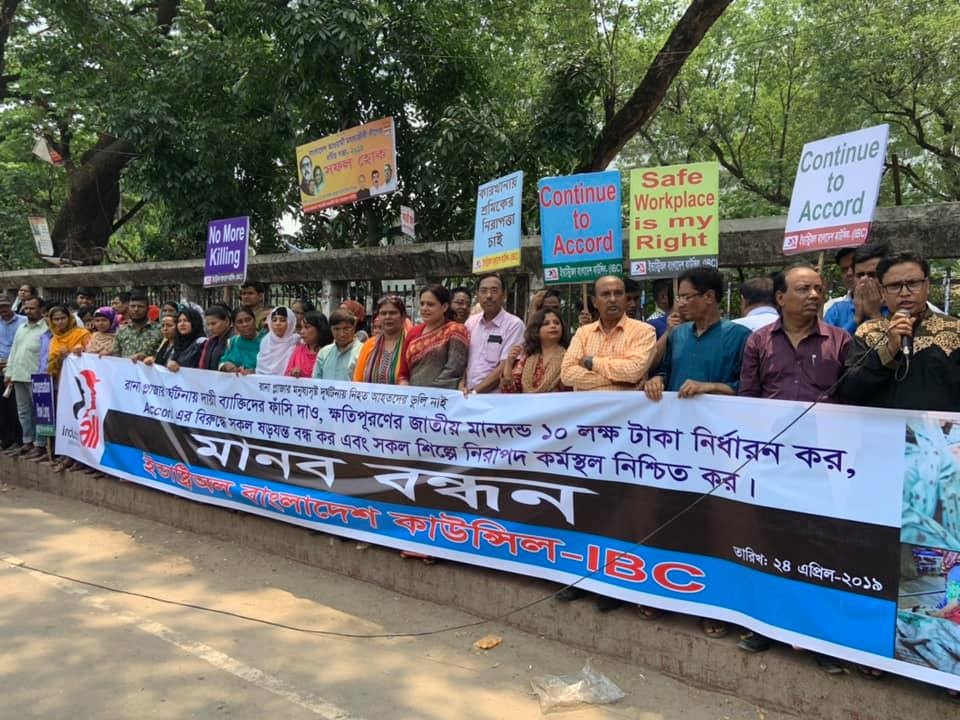24 April, 2019The IndustriALL Bangladesh Council called for the continuation of the Accord in Bangladesh in a demonstration today to mark the sixth anniversary of the Rana Plaza disaster.
Some 150 people from IndustriALL’s trade union affiliates in Bangladesh took part in the protest in front of the press club in the capital Dhaka.
IndustriALL’s regional secretary, Apoorva Kaiwar, who was in Dhaka, said:
“Today, we remember the victims of Rana Plaza tragedy, who perished on the darkest day in the history of the garment industry. They will never be forgotten, and we will never cease in our efforts to improve garment factory safety in Bangladesh.”
IndustriALL together with UNI global union, led the drive to set up the legally-binding Bangladesh Accord on Fire and Building Safety in the aftermath of the Rana Plaza disaster. More than a thousand workers were killed and 2,500 people were injured when the Dhaka garment factory complex collapsed on 24 April 2013.
Jenny Holdcroft, assistant general secretary, IndustriALL Global Union"Six years on, the future of the Accord is hanging by a thread. Now is not the time to go backwards."
However, in recent months, the Accord has been under continuous threat of expulsion by the Bangladesh authorities. Last week, the Supreme Court of Bangladesh gave another short-term extension to the Bangladesh Accord, scheduling the next hearing to determine the safety programme’s fate on 19 May 2019.
“Thanks to the Bangladesh Accord, millions of garment workers can do their jobs in safety and without fear for their lives,” said IndustriALL’s assistant general secretary, Jenny Holdcroft. “And yet, six years on, the future of the Accord is hanging by a thread. Now is not the time to go backwards. Bangladesh has made great strides, but factory safety must still be maintained and improved and this requires ongoing training of workers and managers as well as an effective complaints mechanism.”
The Accord, which is signed by 190 global brands, has carried out over 30,000 safety inspections on more than 1,600 factories covering more than two million workers. Over 90 per cent of remediations of initial inspections have been completed.
“The Bangladesh Accord must be allowed to continue until the government is able to guarantee the same levels of transparency and accountability that the Accord has pioneered to give confidence to workers, brands and consumers that garments are manufactured safely in Bangladesh,” added Holdcroft.




